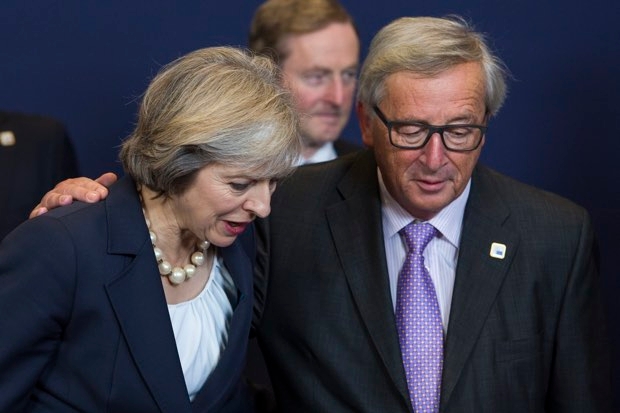The Government’s insistence that we should not give away our hand in negotiations with the EU has backfired. It is putting us in a weak position because the primary reason for not giving away your hand is when you are bluffing. We are not bluffing. We are in a strong position and should take maximum advantage of it.
When negotiating with someone who may or may not be reasonable, there is unavoidable uncertainty. We should define the worst that can happen and prepare for it. We can’t control how our opponents behave, but we should define all the things we can control and make sure we control them. Whether or not we make a success of independence will in reality depend not on the decisions of the EU but on the way we handle the decisions that are within our powers. Managing the exchange rate and investing in productivity-enhancing infrastructure are only the most obvious of many such measures. Moreover, we should remember that our opponents have difficulties too. Many of Europe’s political leaders face elections in the next year or two. Their electorates could easily remove them.
What does the EU have that we want, and what do we have that they want? What is the balance of power? When tiny Switzerland negotiated a trade deal with China, the Communist government insisted that it must have immediate tariff-free access to Switzerland for its manufactures while Switzerland had to wait between five and fifteen years before China would remove all tariffs. We are not in the same position. The EU sells us more than we sell them. 5.8 million EU jobs rely on exports to the UK. Some companies are fearful of having to pay tariffs on exports to the EU, but they forget that we will charge tariffs on EU exports to the UK. At 2015 trading volumes we will receive nearly £8 billion more than we pay. The worst case is manageable. Many non-members export successfully to the EU single market despite paying the tariffs.
For this reason we should declare our negotiating hand: we wish to leave the EU, which means not being members of the single market, which means that we will pay the tariffs and charge the same tariffs on EU exports to the UK. If the EU would like an agreement to lower tariffs, or keep them at zero, that will be fine with us. If they don’t, then we are prepared.
Saying that we do not want to declare our hand in advance implies that we are bluffing and we don’t want the EU to know what we will be prepared to concede as discussions proceed. They will see this as weakness. Moreover, they will know that there are weak individuals within the Cabinet who are ready to make concessions. The Treasury is the main bastion of timidity and should be brought to heel. We don’t need to bluff. The worst the EU can do is to impose net tariffs on itself of £8 billion a year.
And if we end up paying and receiving tariffs there are numerous ways, within the WTO rules, in which we can compensate industries that pay the most. The recent announcement that Nissan plans to continue investing in the UK revealed that location decisions are marginal for companies that already have major investments here. Companies that export focus on the price at which they can sell overseas. It will depend on domestic costs, the exchange rate, and on tariffs. The UK government can make a decisive difference to all of them, as Nissan surely accepted.
Lord Hill, Britain’s EU commissioner until his resignation, recently told Radio 4’s Today programme that many in Brussels believe we will back down completely and stay in the EU. All the talk of not laying our cards on the table emboldens them to be recalcitrant in the expectation that we will give in. But if we declare that the WTO option is our primary objective, and mean it, then they can’t hold a gun to our heads.
David Green is Director of Civitas






Comments